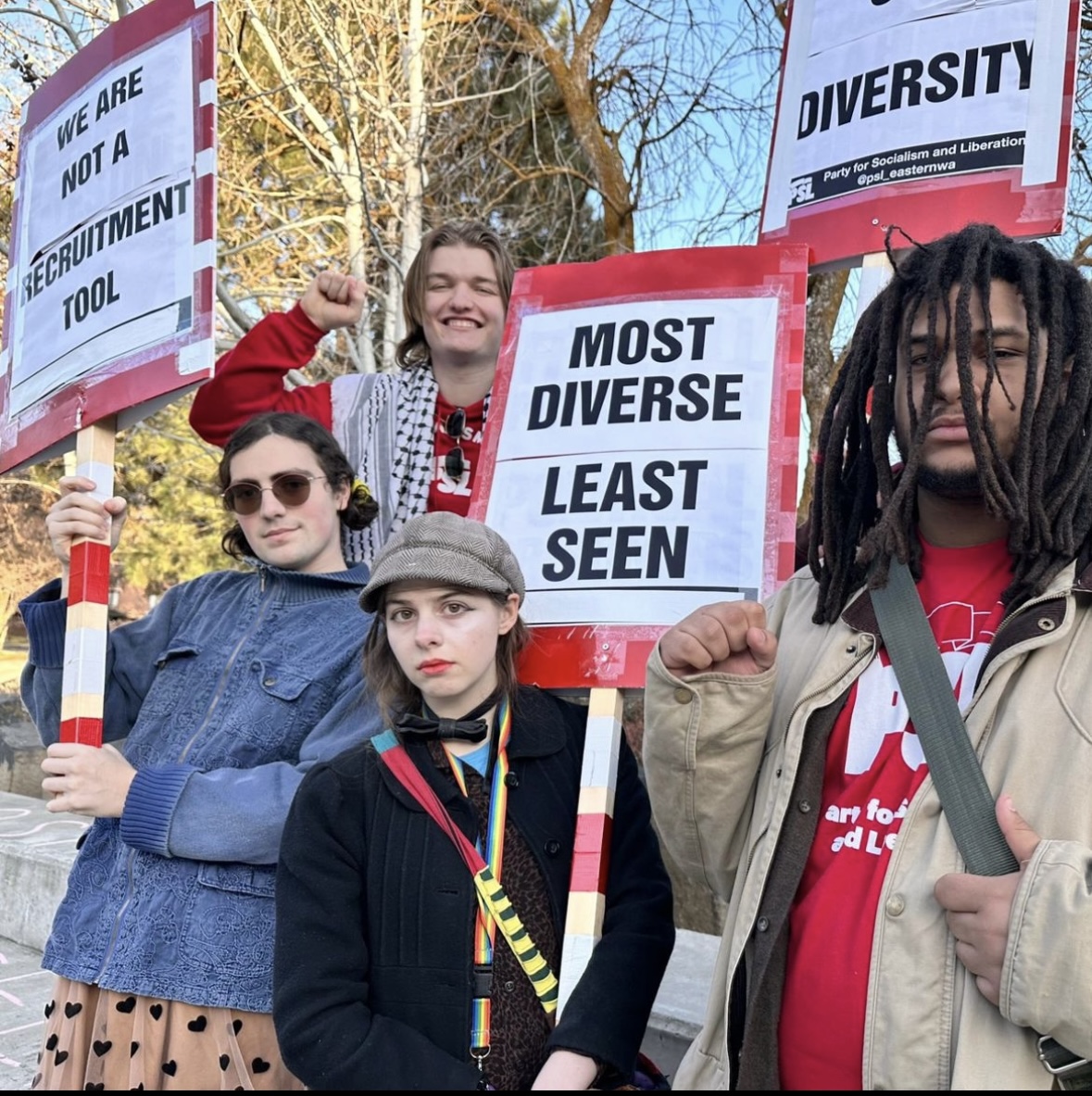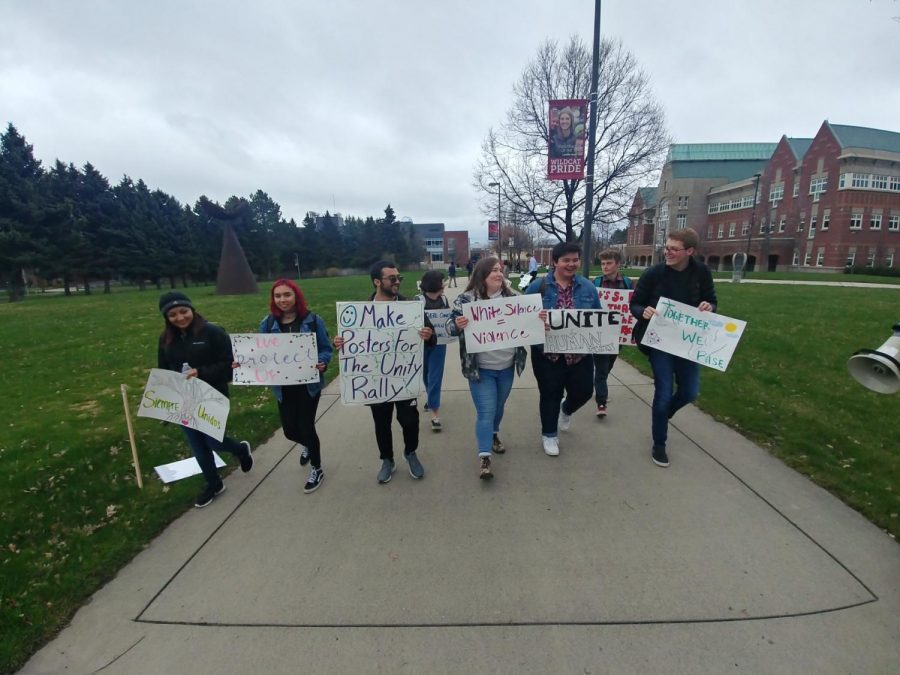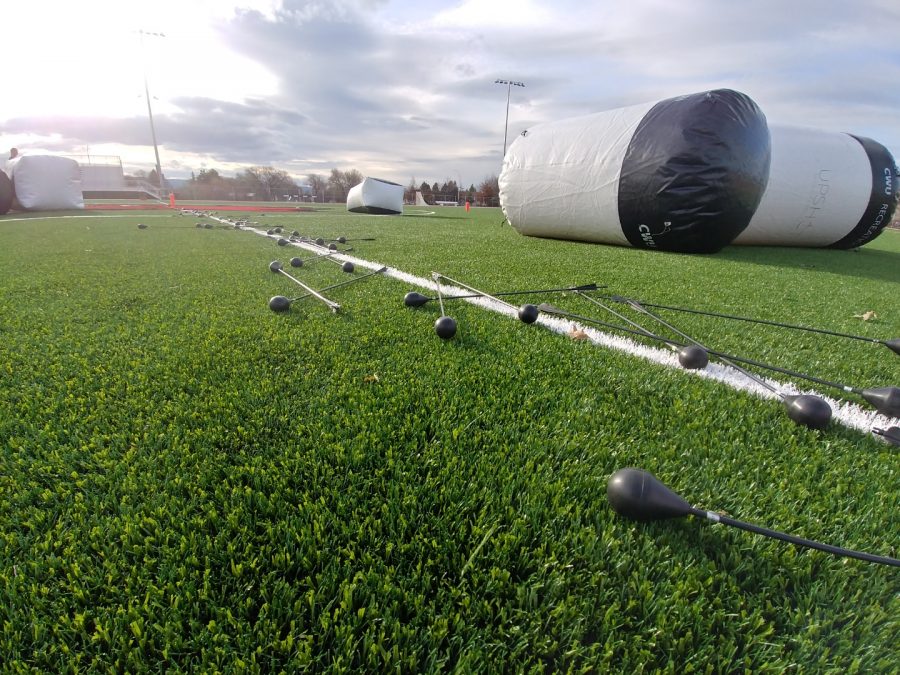By PATIENCE COLLIER, staff reporter
Basic rights have been a hot topic on the Central Washington University campus, as the First Amendment festival kicked off this week.
Guardian columnist Glenn Greenwald was the keynote speaker, and each day in the SURC Pit, Professor Brian Carroll’s history students re-enacted famous First Amendment trials. Student clubs and organizations also tabled in the “Marketplace of Ideas.” The festival, which is running in conjunction with College Civics Week, ends today with a lunchtime Speak Out Central debate in the SURC pit.
On Monday, students read excerpts from the Daniel Ellsberg whistleblower case. He was accused of theft and conspiracy for copying and distributing the Pentagon Papers; top-secret military documents that proved the U.S. government had been lying to the public about the Vietnam War.
Greenwald also spoke at the re-enactment. He drew parallels from Ellsberg’s actions to former soldier Bradley Manning, who released classified documents to the organization WikiLeaks for similar reasons and was held in solitary confinement for more than two years before being court martialed.
“He knew when he decided [to leak the documents] that he was going to be prosecuted and was likely to go to prison for the rest of his life,” Greenwald said. “And he made that decision to give up his liberty. He simply could not, in good conscience, let those lies continue to be concealed.”
Keith Champagne, the assistant dean for student development, was in the crowd watching the case.
Champagne said he was attending to support the students and because one could always learn something by watching events, even those that they may have studied earlier in life.
“I think it’s a struggle facing all of us,” Champagne said. “How do we continue to allow people to have their Constitutional rights, as we move to ensure that our society becomes a safe society, given what’s going on in terms of terrorism around the world.”
Champagne said it was important to draw a balance between protecting civil liberties and keeping citizens safe, but stressed the importance of protecting the rights of American citizens.
“We have to trust that what’s in place in the system will work regardless of the crimes that are committed in America by Americans,” he said.
He mentioned that this struggle is not a new thing facing this generation.
“We have a history of denying people their constitutional rights, regardless of what the crime is,” Champagne said. “If you look at how people of color have been tried throughout the history of American jurisprudence, you will find that even today, in non-terrorism cases, there are certain members of our society who are marginalized in their rights.”
This reaction echoed, in many ways, the points made by Greenwald in his speech Monday afternoon, which covered First Amendment rights and the ways in which they have been eroded in the name of national security.
Greenwald stressed that the violation of First Amendment rights falls first on marginalized groups.
“I think the critical thing to understand is that the measure of how free a society is is not how it treats its law-abiding, relatively quiescent citizens,” Greenwald said. “It’s how it treats its dissidents, or people who are in some kind of group that has been marginalized and demonized.”
Greenwald frequently referred to the “War on Terror’s War on the First Amendment,” and the way terrorism has been used as an excuse to deny, or abridge, the rights and civil liberties of United States citizens. He closed the speech by taking questions from some audience members about issues such as how the issue of terrorism is effecting prosecution of citizens.






